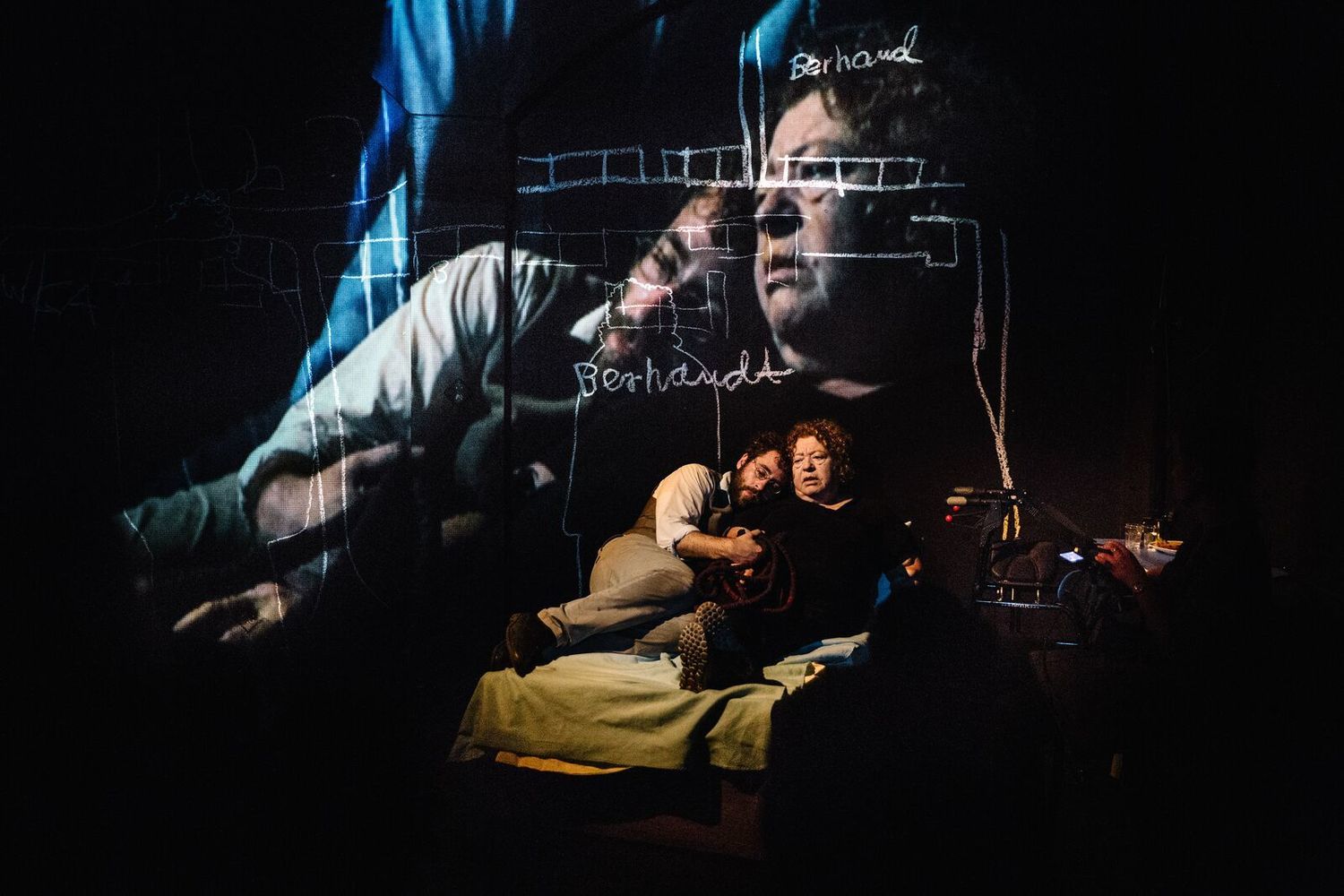Review: WE KEEP COMING BACK is a Visually Dynamic, Personal Look into Jewish-Polish Identity

WE KEEP COMING BACK, produced by Factory Theatre and Selfconscious Productions, begins with a dream of Warsaw, but strangely enough, never quite gets there. Most ideas expressed go unanswered by the cast, and rightfully so, given the show's foundation.
The no-script show, directed by Sarah Garton Stanley, follows Michael Rubenfeld and his mother Mary Berchard as they retell and re-enact the story of their trip through Poland to reconnect with their ancestral and Jewish roots, gain a better understanding of pre-war life, take in first-hand the atrocities of the Holocaust, and establish the mother-son relationship both want but can't seem to achieve.
The constantly arguing pair are accompanied by their guide/documentarian/buffer Katka Reszke, a Jewish-Polish woman with a history of self-discovery and Jewish studies under her belt. Although Katka comes in with the intention of keeping Mary and Michael from fighting, the dynamic quickly flips to one where Katka and Michael go after one another over cultural differences, with some pretty sharp accusations thrown about on multiple occasions.
Rubenfeld begins the story as the protagonist, but his actions and opinions quickly shift from curious to rudeness, backed by an obsessive need to outdo other individuals' trauma in favour of the story he wants to tell with his project. His performance is incredibly passionate, and his dynamic with Reske during their arguments is highly compelling - neither is afraid to yell at the other, which offers a great idealization of what their trip must have been like. While the characters aren't afraid to fight, and Michael openly berates Katka and Mary's experiences during the retelling, it lends itself to the question of whether these arguments came up during their trip, or after - which is never really answered. In fact, many questions asked - sometimes literally, by the cast to the audience - don't have a factual answer, which lends itself to the conversation around generational and identity trauma felt by many Jewish people throughout the world.
While Michael is the clear lead in this show, having developed the project and commanded control throughout the trip, Reske and Berchard manage their roles wonderfully. Where Michael is a frantic, anxious, over-excited theatrical, Mary is a blunt, honest, relaxed presence. She doesn't take anything from anyone, especially not her son, and manages to deliver some of the funniest one-liners in the show with deadpan delivery that seems to come naturally with motherhood.
Fleshing out the trio, Reske plays double-duty to deliver tongue-twisting fast delivery of Polish dialogue, enhancing the complexity of the language while poking a bit of fun at Michael, whose investment in his culture hadn't quite gotten him to learn an extensive amount of Polish. The show shines in it's more comedic or tense moments, however there were a few scenes that felt detached - primarily, the moments between characters where long-winded apologies or Hallmark-standard admittances of familial love.
One particular scene between Michael and Mary, following the admission that neither liked the other, saw the delivery of life-altering news and lead the mother and son to statements of love and a lot of hugging - while this was a nice scene, in a non-scripted show it felt particularly false in comparison to the rest of the show, and the quick jump into jarring dialogue about the ghosts of their family felt a bit misplaced.
Despite being an unscripted show, WE KEEP COMING BACK features an array of set pieces and props, many of which work well to place the actors in an array of settings. Unfortunately, an almost constantly-present item is the rope that ties Michael and Mary together. While it provides a nice bit of symbolism, it seems to catch on multiple set pieces and cause a bit of issue during full stage transitions.
While many shows struggle with the use of projections, and on incorporating them in the story, WE KEEP COMING BACK is at its core a multimedia-theatrical experience that relies on human storytelling, with materials created for the show specifically. Scenography and technical (Trevor Schwellnus) was managed wonderfully, and the use of a huge chalkboard as the projection screen gave the actors additional ways to convey their story, with overlapping chalk outlines of people, maps, and the (mis)spelling of Polish towns.
Due to a lack of script, at times the show seems to linger too long on some moments and speed too quickly through others. Actors speak over one another, or miss cues, on occasion. Despite these small issues, the dynamic combination of multimedia and live performance adds an intriguing depth to the standard 'disaster trip' trope of the story, and the cast - two of which have little to no professional acting experience - leverage their personal insight to bring heart to the story. While WE KEEP COMING BACK never does make it all the way to Warsaw, there's plenty of coverage of the firsts three-quarters of the trio's trip to highlight the benefits and downsides of a personal meaning, and the long-term effects that the Holocaust, now nearly three generations ago, still has on Jewish families and individuals throughout the world.
Factory Theatre and Selfconscious Productions' WE KEEP COMING BACK runs through November 25 at Factory Theatre, 125 Bathurst St., Toronto, ON.
For more information or to purchase tickets, visit https://www.factorytheatre.ca/2018-19-season/we-keep-coming-back/
Photo credit: Jeremy Mimnagh
Reader Reviews

Videos
